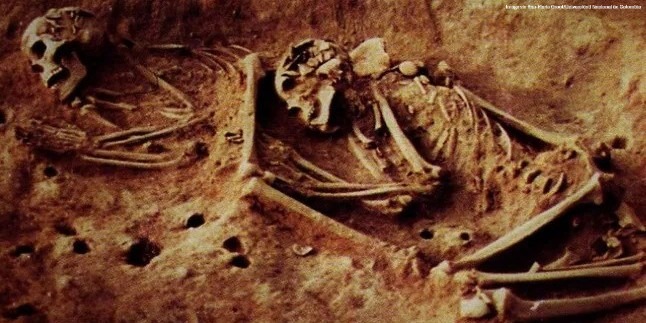In Colombia, archaeologists have found 6,000-year-old skeletal remains with a unique DNA, that doesn’t match any Indigenous group in the region in modern times.
According to CNN, researchers say the remains belong to hunter-gatherers in Checua, Colombia and the data retrieved from the 21 bodies show the lineage dates back to between 6,000 and 500 years ago.
It also shows it belongs to the Bogotá Altiplano people from an area close to an ancient land bridge connecting South and Central America.
This gives them a rare genetic timeline that is totally extinct in the world and could be a key to understanding more about the earliest humans to reach South America.
Previous studies have proven the existence of two lineages, northern Native American and southern Native American, which developed after people first arrived on the continent across an ice bridge from Siberia and started to move south.



Responses